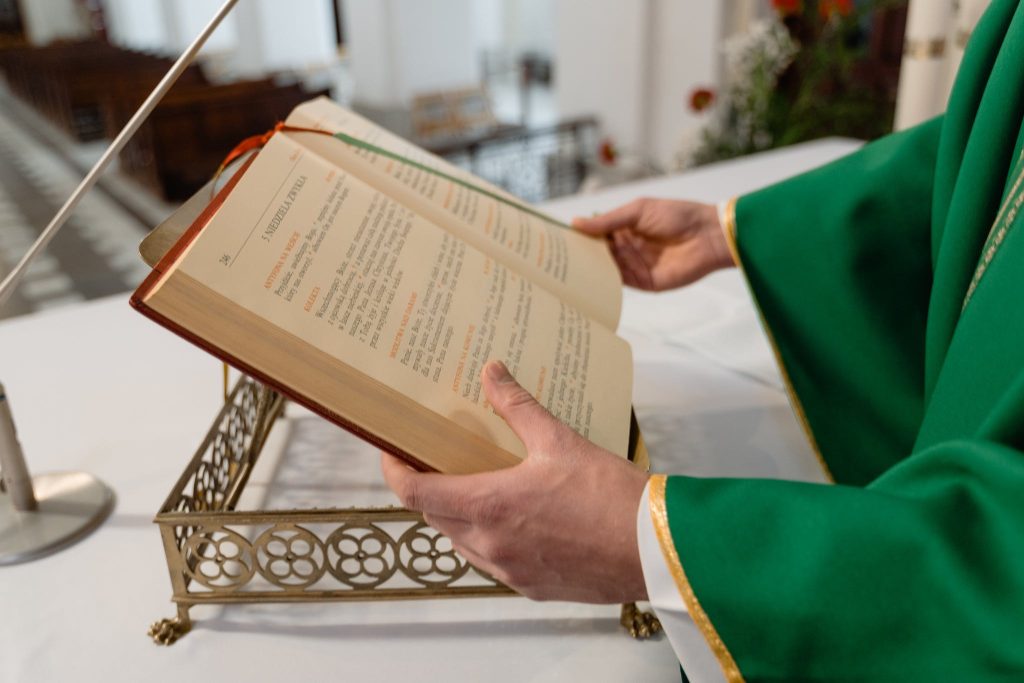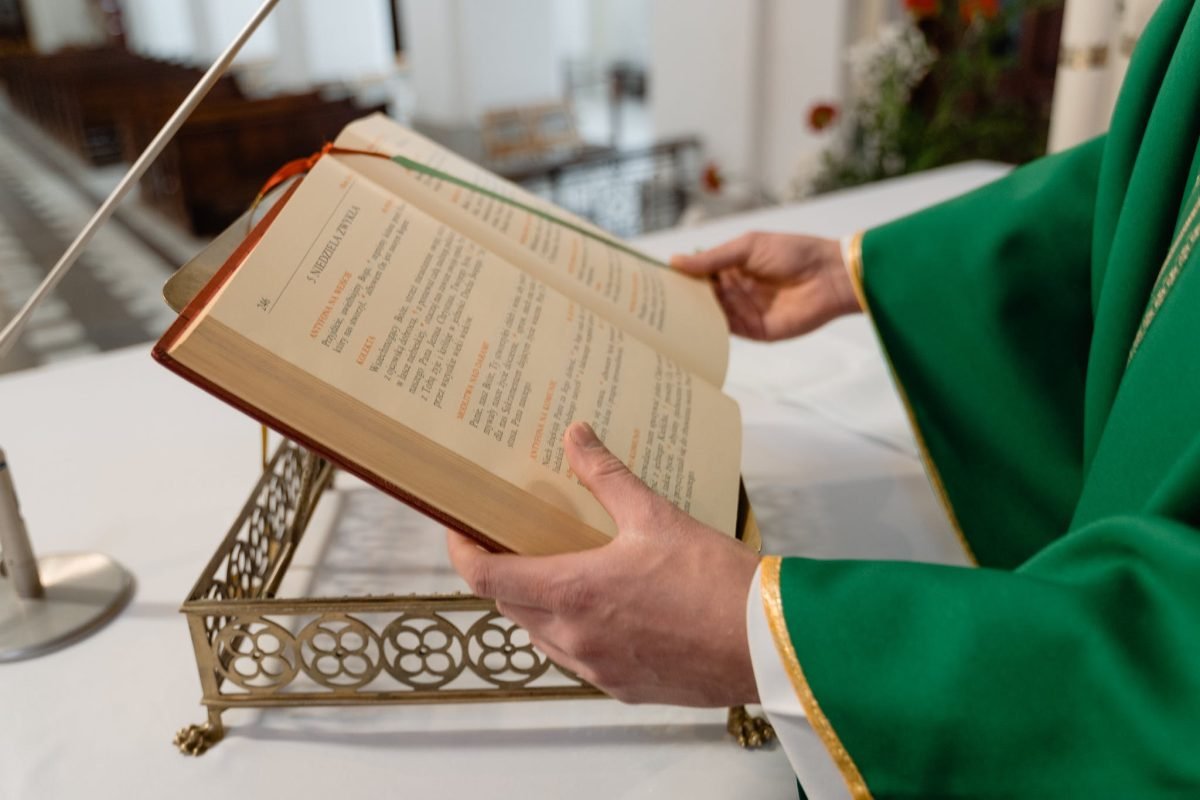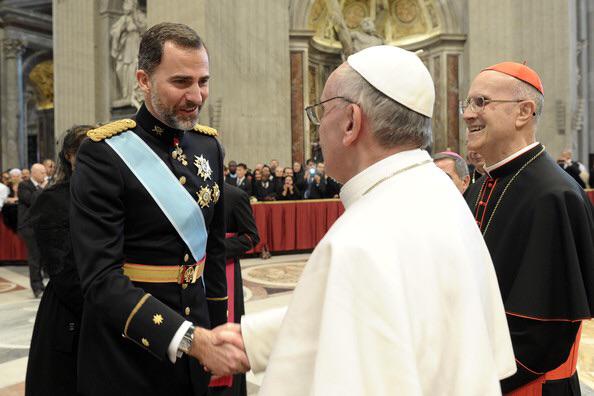What is Reconciliation in the Catholic Church?
The Catholic Church refers to the sacrament of reconciliation as the Sacrament of Penance or Confession. It is considered a sacred ritual in which Catholics confess their sins to a priest and receive absolution or forgiveness. The Catholic Church teaches that this sacrament was instituted by Jesus Christ when he told his apostles: “Whose sins you forgive are forgiven them, and whose sins you retain are retained” (John 20:23).
The Purpose and Effects of the Sacrament
The primary purpose of reconciliation is the reconciliation of sinful human beings with God and the Church. According to the Catechism of the Catholic Church, “by Christ’s will, the Church possesses the power to forgive the sins of the baptized and exercises it through bishops and priests normally in the sacrament of penance” (CCC, 1461).
Through this sacrament, Catholics obtain pardon from God’s mercy for offenses committed against him. At the same time, they are at peace with the Church, which also suffers from sin and facilitates forgiveness through atonement.
The Rite and Form of the Sacrament
The sacrament of reconciliation involves several elements: contrition, confession, absolution, and penance. It typically takes place during a confidential encounter between a penitent Catholic and a priest.
Catholics are called to examine their consciences through prayer and reflection to experience sorrow and detestation for the sins they have committed. This contrition is necessary for obtaining forgiveness. They then confess their sins to a priest and receive absolution. To help undo the harm those sins have caused, the priest imposes acts of penance.
The Minister of the Sacrament
In the Catholic Church, only ordained priests can administer the sacrament of reconciliation and grant sacramental absolution. This authority comes from bishops and, ultimately, the Pope as successor of St. Peter. Deacons, religious brothers and sisters, and lay people cannot provide sacramental absolution.
Necessity and Frequency
The Catholic Church considers reconciliation spiritually advantageous when Catholics seek it with a contrite heart. At the same time, it teaches that Catholics must confess their serious or mortal sins at least once a year. This precept ensures that Catholics remain in God’s grace and have the spiritual strength to resist sin in the future. Even if they have only venial sins, confessing them often allows Catholics to advance in holiness.
Confidentiality
What the penitent says to the priest during confession remains completely confidential. This is known as the “seal of confession.” Church law forbids priests from revealing anything said during confession for any reason. The sanctity of the sacrament demands secrecy. Violating the seal of confession incurs automatic excommunication from the Catholic Church.

Key Teachings on Sin and Forgiveness
A proper understanding of reconciliation relies on several Catholic beliefs about the nature of sin, mercy, and forgiveness:
The Reality of Sin
Catholics believe that sin is a deliberate violation of God’s law that ruptures one’s communion with God and the Church. Reconciliation aims to repair that fundamental damage at its root. However, the Catholic Church also teaches that humans tend to sin due to the fall of Adam and Eve as well as their own concupiscence.
God’s Mercy is Greater Than Sin
At the same time, it teaches that God’s grace, mercy, and forgiveness are always greater than any sin. In confession, penitent sinners place their trust in God’s infinite goodness and compassion.
Effects of Sin on the Church
Every sin affects the entire church because all Catholics comprise the mystical body of Christ. Reconciliation repairs the harm inflicted on the whole Christian community. This communal dimension adds weightiness to the sacrament.
Only God Forgives Sin
The Church teaches that only God has the power to forgive sins against him. Yet he chooses to extend his forgiveness through visible representatives, namely ordained priests. The priest does not personally forgive sins but instead acts in persona Christi as an instrument of divine mercy.
Forgiveness Requires Conversion
According to Catholic doctrine, forgiveness requires true interior repentance and conversion, along with the desire to atone through penance. This demonstrates remorse, a resolution to avoid future sins, and the beginning of a personal transformation. Without proper disposition, reconciliation remains ineffective, and full release from sin is not obtained.
The sacrament of reconciliation has long marked spiritual life in the Catholic Church by providing believers with an encounter with Christ in his mercy. Through this sacrament, they confess sins, express contrition, and resolve to sin no more. In return, they hear the soothing words of absolution and forgiveness. Reconciliation supplies the grace to overcome habitual sins and grow in holiness on the journey toward final redemption in heaven.







